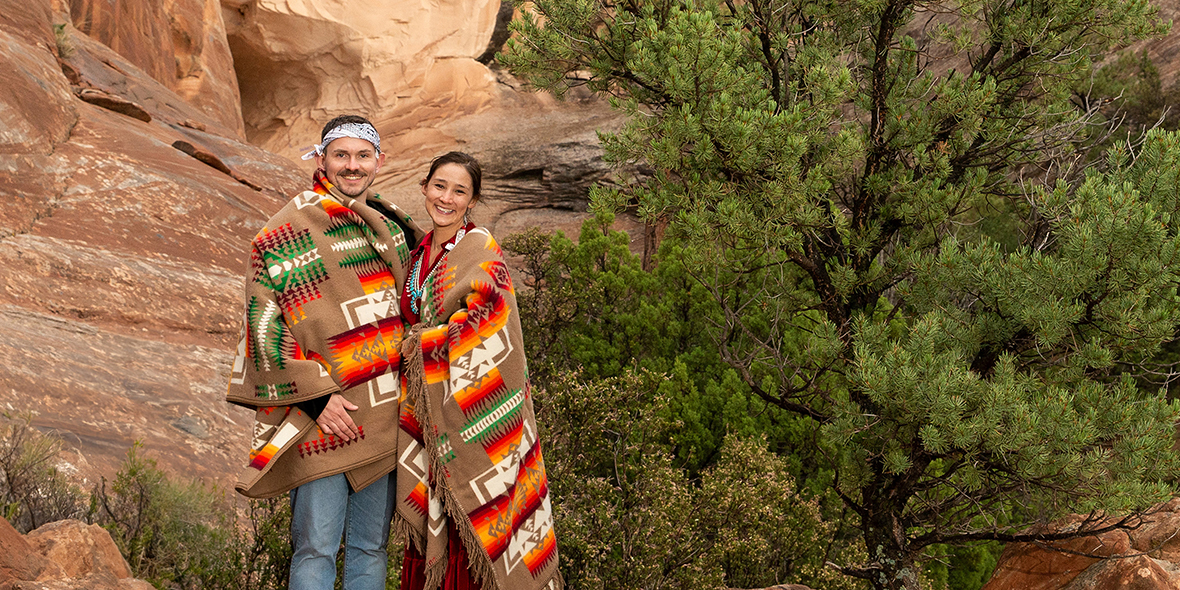From: https://health.ucdavis.edu/synthesis/issues/winter2024/community-outreach/outreach-specialist.html
Cancer center seeks to understand cancer burden of Northern California’s Indigenous peoples
Many Indigenous communities, including Native Americans in California, suffer from significant cancer health disparities, which are evident in high rates of death from colon, kidney, and stomach cancer. UC Davis Comprehensive Cancer Center recognizes the unfair cancer burden shouldered by Indigenous peoples and the unique combination of risk factors that may be contributing to the inequity.
Diets lacking fresh produce and other healthful foods, as well as limited access to health care screenings and care, increase the cancer risk. This is particularly true for rural communities that make up a significant proportion of tribal lands. Environmental exposures and genetics also can play a role in the cancer risks threatening Native people.
The cancer center wants to understand these disparities, so its Center for Advancing Cancer Health Equity created a new tribal community engagement liaison role. UC Davis Genome Center postdoctoral researcher Nicole Halmai was appointed to the position and is working to identify cancer health priorities for Indigenous peoples in the northern and central parts of California. She is also seeking to better understand the factors that might influence their willingness to take part in cancer precision medicine research.
Halmai’s current research is focused on the development of pre-clinical cancer models and epigenomic data from racial/ethnic minority populations to advance cancer health equity.
“Before we do anything else, we need to build partnerships with Indigenous communities and tribal leadership to guide cancer disparity research.”
Nicole Halmai, UC Davis Genome Center Postdoctoral Researcher
Personal connection
Halmai is passionate about building relationships with Native communities. That’s because she is Diné, a citizen of the Navajo Nation. Her mother grew up on the Navajo Nation, located in the Four Corners region of the Southwest.
Growing up in Phoenix, Arizona, Halmai spent every summer with her maternal grandparents on the family’s 1,650 acres in the Navajo Nation. Halmai still visits her family’s land, where she and her husband were recently married in a traditional Navajo wedding ceremony.
New tribal outreach begins with building trust.
“California has the largest population of Native Americans in the country, but there is a certain level of distrust when it comes to medical care and biomedical research, given historical mistreatment of Native peoples and misuse of samples and data,” Halmai said. “Before we do anything else, we need to build partnerships with Indigenous communities and tribal leadership to guide cancer disparity research.”
Halmai said she feels building an advisory board is critical. She is hopeful that suggestions from the Native communities will eventually lead to community-driven research projects that will both help to improve Native representation in cancer precision medicine research and rectify cancer health disparities experienced among Native communities.
Along with recruiting for the advisory board, Halmai is generating commentary from community members by attending talking circles at local tribal events and health fairs, and asking people to take part in health surveys to help identify what is important to them.
“We are also working closely with Native community-focused health care providers to support cancer health and research education,” Halmai said. “Ultimately, one of our main goals is to support capacity-building efforts for tribal nations, allowing them to expand their own health care infrastructure and improve cancer care for their citizens.”
